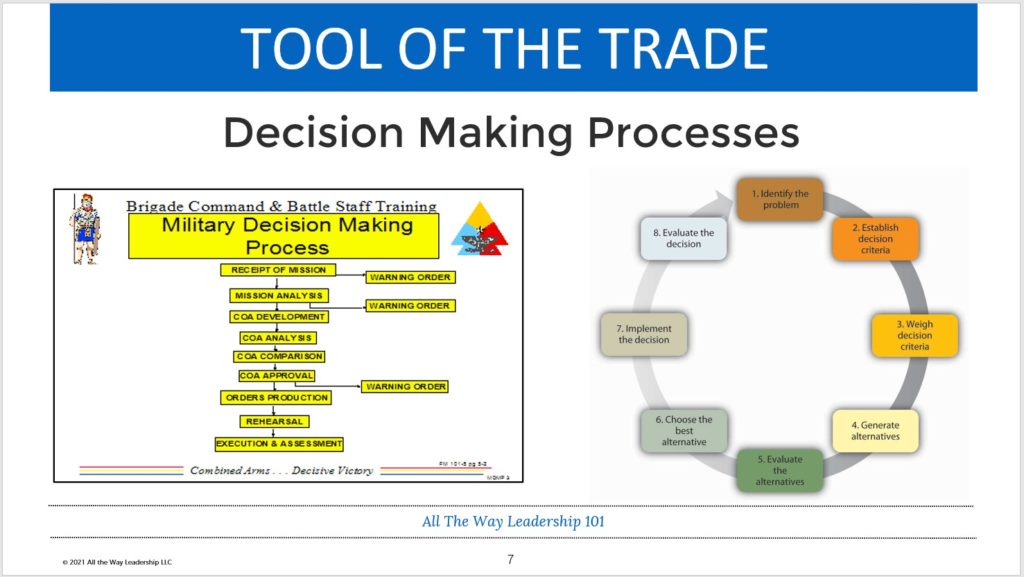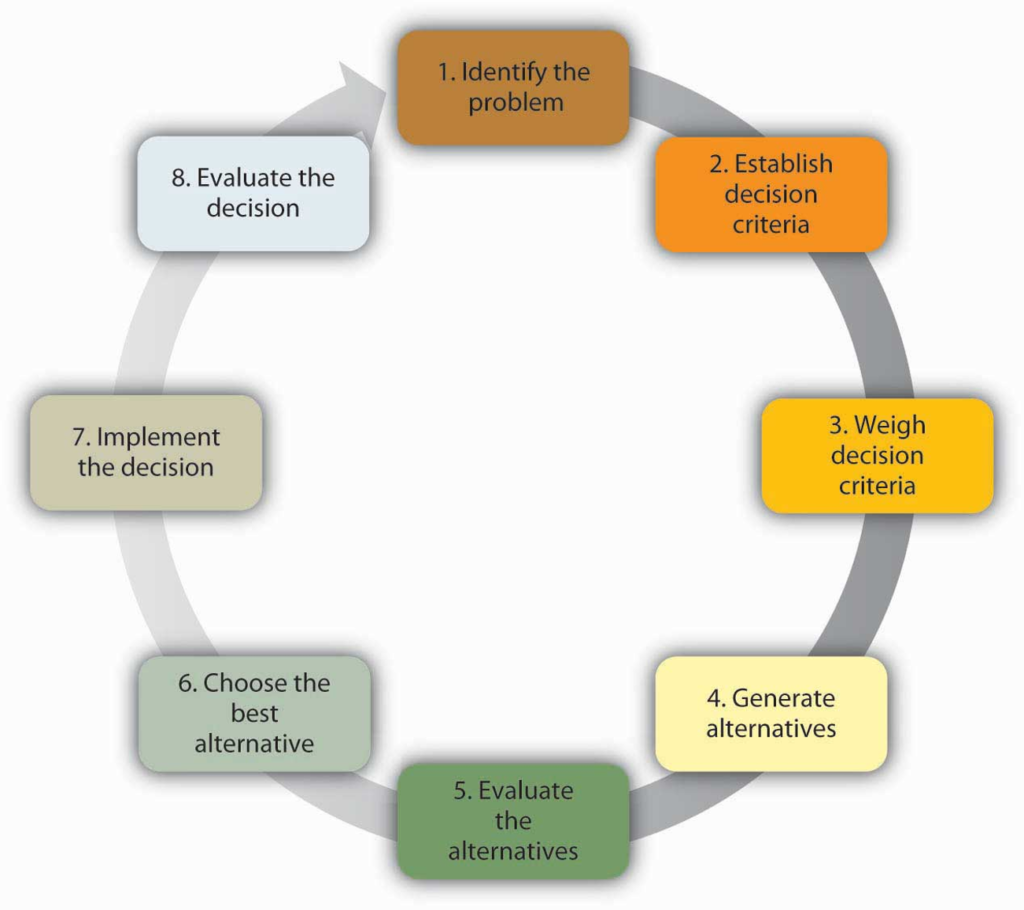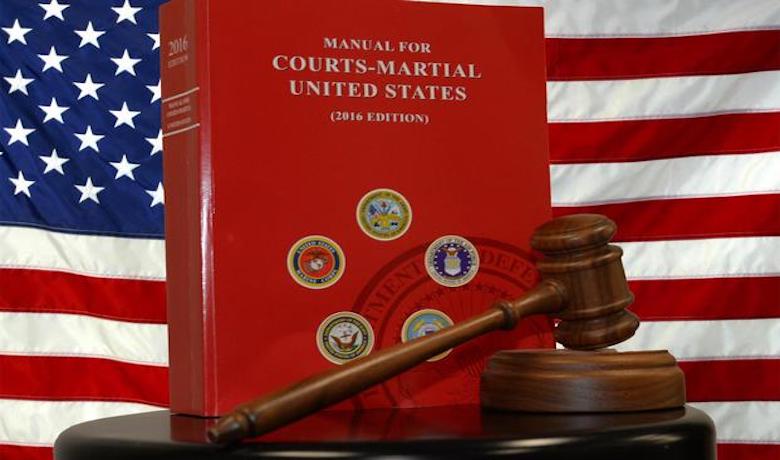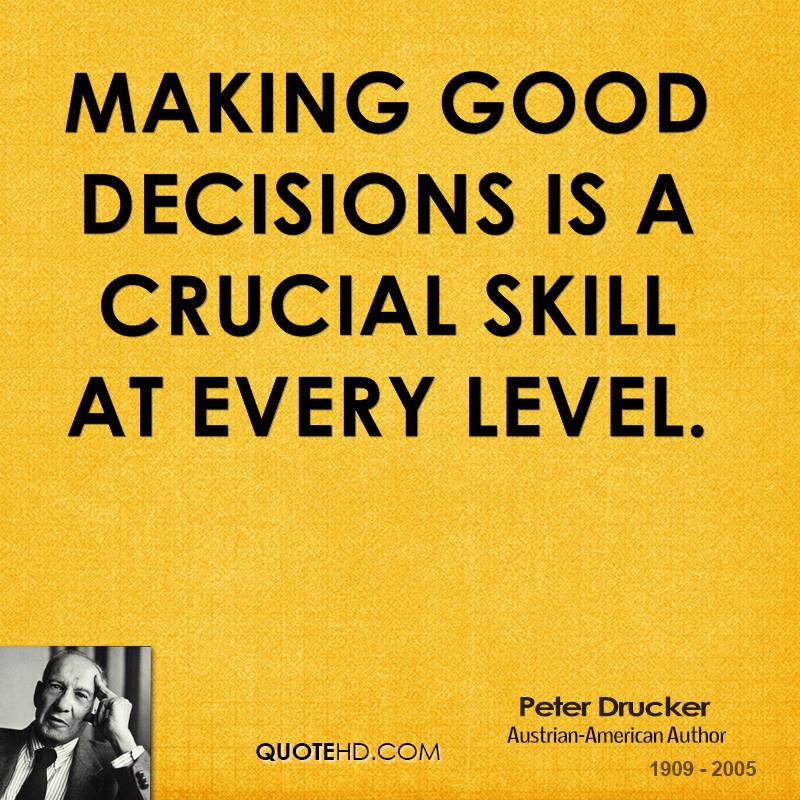The main focus of this leadership blog during 2022 has been making good decisions. Let’s wrap up this topic with a quote from a famous leadership guru that hammers home why it is important. If you want to be a great leader you must be able to make good decisions. Bad decisions lead to bigger problems down the road.
“Most discussions of decision making assume that only senior executives make decisions or that only senior executives’ decisions matter. This is a mistake.”
Peter Drucker
All leaders make many decisions
Peter Drucker is saying that if you are in a leadership position you will make decisions. It is a fundamental part of any leadership role. You may ask yourself – am I a leader? The simple answer is if you are in charge of anything or anyone then you are in a leadership position. Make sure you know how to make decisions, good ones. Remember, if you choose not to make a decision, then you have made a decision—the decision to do nothing which is usually unacceptable.

What happens when lower-level leaders make bad decisions
When junior leaders make bad decisions it produces terrible results. If they go unchecked, by senior and executive leaders really bad things can happen. I will use a real-world example to drive home this point. In 2018 a consultant provided a warning to a property management company about the state of their buildings in a Miami complex. It cited “alarming evidence of major structural damage to the concrete slab below the pool deck and abundant cracking and crumbling of the columns, beams, and walls of the parking garage under the 13-story building. Reports were filed, and plans were made, but the work was not completed in time. The buildings collapsed in the middle of the night on June 24th, 2021, and killed almost 100 people. A series of bad decisions and delays by execution-level leaders was not caught in time to avoid this tragedy.
Good decisions are needed at all levels of an organization
Peter Drucker is reminding us that decisions matter at all levels of an organization, not just at the top. Yes – senior executive-level decisions are hugely important. Decisions made by lower-level leaders also create impacts – either positive or negative. In high-performing organizations, execution-level leaders are empowered, and they make good decisions. At the other end of the spectrum, lower-level leaders may be inhibited from making decisions, or they are not trained to make good ones. Instead, they make bad decisions that create negative impacts. If left unchecked bad decisions made by non-executive leaders can lead to catastrophic results.

Empower and train your leaders so that they know how to make good decisions
How do you avoid a scenario like the one in Miami? Empower your leaders and train them so that they know how to make good decisions. Your team will amaze you with results if you make this investment. The more good decisions your leaders make, the better off your team will be today and down the road.

ATW! will make you a better leader
I hope you join me on this journey to raise the next generation of leaders. The world is in desperate need of more great leaders. Women and men who lead with confidence, clarity, and creativity. It’s time to become the leader that your world needs. Let’s go All The Way!















